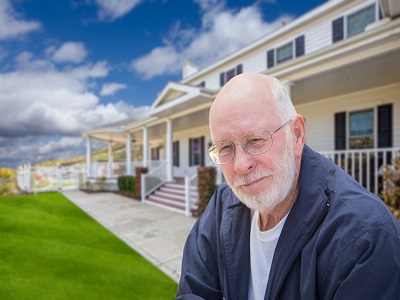
Senior care is essential for many older adults, regardless of whether they need in-home care or full-time care at a nursing home. The cost of senior care can be a concern for seniors who are on Social Security and have limited pension benefits.
Senior care is becoming more costly due to rising inflation. The 2021 Genworth Cost of Care Survey shows that seniors in the United States spend an average of $4500 per month on assisted living and $7,908 for semiprivate rooms in a nursing home.
Many seniors have decided to sell their homes in order to pay for the care they require. Selling a home can be complicated, especially for seniors who are dependent on government benefits. This guide will help you organize and make smart decisions about everything.
When is the best time to sell your parent’s home to pay for senior care in Myrtle Beach?
When selling your parent’s house to pay for senior care, timing is key. It can take months to list the home, which could leave your family responsible to pay property taxes, utility bills, and other expenses. It is possible to deprive your parent of the chance to stay in the house as long as possible by listing it too soon.
Before Senior Living
There are several reasons to consider selling your home before your parent can move into a senior living facility:
- They are unable to pay their mortgage payments or property taxes.
- You may have to wait several months for an offer because of the high supply and limited demand in your area.
- You or another relative will be moving in with your parent. This gives you plenty of time to put the house on the market and wait for a reasonable offer.
After Senior Living
It may make more sense to sell your home after your parent moves into a senior living facility. These are just a few examples:
- If your parent is suffering from Alzheimer’s disease or another type of dementia, it would be difficult to sell the house while they are still living there.
- Before you can schedule showings, you will need to make changes or clean out years of clutter. If no one is living in the house, it’s easier to clean and remodel.
- Your parent doesn’t want to have the responsibility of tidying up and making yourself presentable for anyone who visits your house.
- Your parent has just been discharged from a rehabilitation center or hospital and cannot return home without putting his/her safety and health at risk.
- To decorate your house, you will need to hire a professional home stager. This will increase the likelihood of getting multiple offers beyond what you paid. It is easier to stage a house after the owner has moved out.
Particular Considerations when Selling a Home to a Person with Dementia
The legal owner usually is the only one who can sell real estate. You may have to make arrangements for them to make sales decisions. You have two options: guardianship and power of attorney.
Power of attorney
A financial power of attorney allows someone to manage the finances of another person. You can perform many tasks such as selling assets, managing a bank account, paying bills, and filing tax returns. You should arrange POA as soon as you have been diagnosed with dementia. Your parent may not be able to sign the documents if they are unable to do so.
Guardianship
Guardianship is more complicated than power of attorney. This makes it more costly and time-consuming. A judge will appoint a guardian and conservator to help an older person make their decisions. The conservator and guardian are often the same people. However, it doesn’t necessarily have to be this way. It is possible to be the conservator and guardian if you have a trusted sibling.
You are a guardian for your parent’s parent if you are appointed by the court. This means that you must act in their best interests and not yours. You also have a duty as a guardian to the court. Full guardianship allows the appointed guardian to make any decision for the elder person. Limited guardianships can be more restrictive because the guardian cannot make any decisions except as provided in a court order.
It can be difficult having to move your loved ones into assisted living. However, we’re here to help. Visit Reflections Assisted Living at Carolina Forest today to find out more.
Like our Facebook page for more great info about assisted living and memory care.
Reflections Assisted Living at Carolina Forest
219 Middleburg Dr
Myrtle Beach, SC 29579
(843) 903-0700
https://www.reflectionsassistedliving.com/



